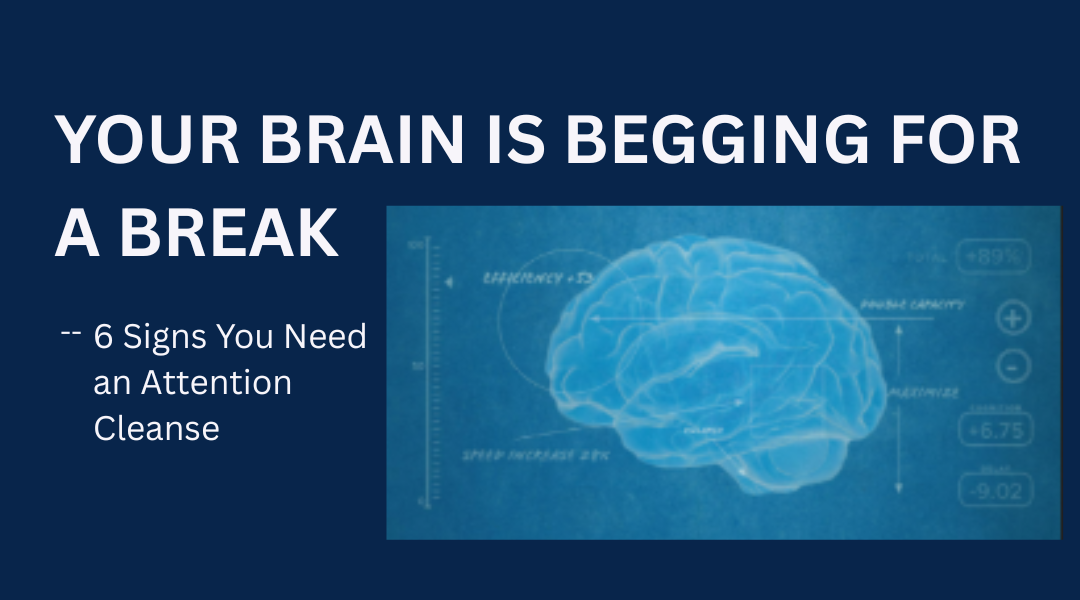We’re living in an attention economy, and your focus is the currency. But what happens when your mental wallet feels constantly pickpocketed? Here’s how to spot when your brain’s waving white flags you’ve been ignoring.
1. The Phantom Phone Grab
You catch yourself reaching for your phone:
- While brushing your teeth
- Mid-conversation with your partner
- The millisecond a thought requires effort
This isn’t just a habit—it’s your brain’s Pavlovian response to discomfort. Like a lab rat hitting the dopamine lever, you’ve trained yourself to seek digital relief at the first sign of mental effort.
2. The Endless Tab Shuffle
Your work process looks like:
- Open report
- Check Slack
- Google random question
- Remember report
- Repeat
Real damage: University of California research shows it takes 23 minutes to regain deep focus after interruptions. That “quick check” costs you nearly half an hour of prime brainpower.
3. The Creativity Drought
Remember when ideas used to bubble up in the shower? Now your mental landscape looks like:
- “I should post something clever on LinkedIn” → blank
- “What if we tried a new approach?” → crickets
- “I’ll just reuse last year’s template”
This isn’t burnout—it’s cognitive clutter smothering your creative sparks.
4. The Decision Quicksand
Choosing lunch feels like a Supreme Court case because:
- 37 tabs of Yelp reviews are open in your mind
- You’re mentally reliving yesterday’s bad salad
- Simultaneously debating if you “deserve” that sandwich
Decision fatigue isn’t about the sandwich—it’s about your brain being too full of mental junk mail to think straight.
5. The Scroll Zombie Effect
You tell yourself “just 5 minutes” of Instagram, then:
- Suddenly it’s 45 minutes later
- You’ve liked posts from people you don’t follow
- You feel worse but can’t remember why
This isn’t relaxation—it’s your attention being held hostage by algorithms.
6. The Exhaustion Paradox
You’re tired but:
- Haven’t moved from your desk
- Didn’t do anything particularly hard
- Can’t point to why you’re drained
This is cognitive overload—your brain’s version of running marathon while sitting still.
The Attention Audit
Try this today:
- Set a phone timer for 60 minutes
- Notice how many times you:
- Reach for your phone unconsciously
- Open new browser tabs
- Lose your train of thought
Don’t judge—just observe. That number is your attention leakage score.
The good news? Unlike a real detox, you don’t need to quit cold turkey. Start with small attention “micro-fasts”—five minutes here, ten minutes there—to rebuild your focus muscles. Tomorrow we’ll explore painless ways to reclaim your concentration. For now, just start noticing: where is your attention actually going?
Because here’s the secret no productivity guru will tell you: in today’s world, protecting your attention isn’t selfish—it’s survival.
